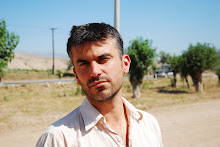In Tajikistan, unlike the majority of natural disasters that occur in the west, many natural disasters are natural disasters, and not a by-product of over ambitious development and poor settlement planning, resulting in a fundamental lack of respect for the forces of nature.
If you read any project proposal, or brief on Tajikistan it starts with ‘Tajikistan is a mountainous country with only 7% of it land cover used for agriculture’. It usually goes onto say that the lowlands are at 600m and from there the only way is up all the way to 6000m peaks. That's a great height for a lot to fall. As Tajikistan is billed as the top of the world herein lies the root of the problem, nothing has ever sat on it and squashed it. Subsequently, it is covered in ‘loess’, lightly compacted weathered chocolate soil that crumbles in your hand and magically turns into mud with the first splash of rain. It washes through the valleys and suffocates the rivers (see photo Rasht) resulting in the inhabitants living in constant fear from floods, landslides, mudflows.
The ‘CAMP’ team has just revisited some villages literally living in the valley of death.
The fate of the inhabitants is known, but instead of riding up the valley, they choose not to ride out. They live in under constant threat, surrounded by eroded gullies, half destroyed buildings, and hillsides denuded of trees and habitation. Everyone bereaves at their own personal loss from a barrage of mud, rocks, or water.
In one location the claw of nature has sliced three parallel vertical gullies, like a knife through butter, destabilising enough earth to swallow a village and digest hectares of farmland. Do the people not realise – of course, will they move – of course not. It is their home, their ancestors’ home; they would rather live in the shadow of death than desert their ancestral spirits, and relocate to new pastures in the southern plains.
Last week CAMP planted 2000 thousand fruit trees to help provide food and slope stabilisation, but they are woefully short by several million saplings to have any real impact. I guess, the inevitable is as always, inevitable.




No comments:
Post a Comment